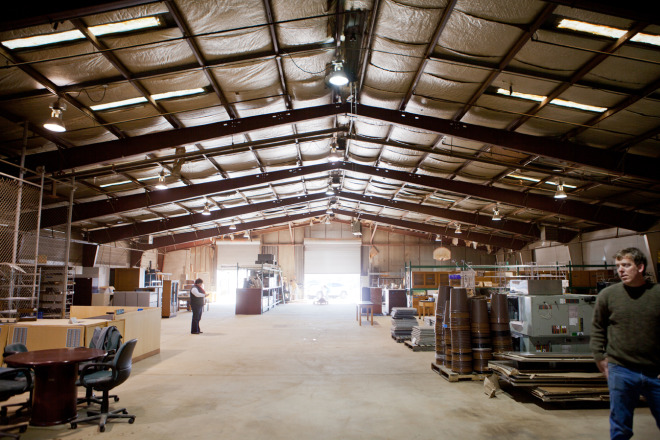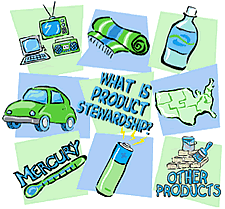ILSR prepared a zero waste plan for the Atlanta Office of Sustainability in 2011-12. During site visits ILSR and Saint Vincent De Paul provided assistance to several community based reuse enterprises. In turn these new community businesses became working partners in ILSR’s and Saint Vincent De Pauls’ national networks. Neil Seldman serves as an advisor to the Lifecycle Building Center.
The Lifecycle Building Center (LBC) was co-founded by Adam Deck, a former store manager for Raleigh’s Habitat ReStore and a professional deconstruction expert, and Shannon Goodman, an architect formerly with Perkins+Will. (P+W)
Deck and Goodman met during the renovation of an existing building in Midtown Atlanta which was gutted and redesigned for P+W’s Atlanta office. P+W worked with a demolition contractor, Todd Phillips, to capture materials from the project and Deck helped the team find nonprofits who needed the available materials. The project resulted in 62 tons of material being distributed to 19 different groups, with a total retail value of $384,000. Other important catalysts were the recovery of 33 tons of materials from a Federal laboratory facility and support from the U.S. Green Building Council – Georgia Chapter through fiscal sponsorship. Several local universities such as Georgia Tech and Emory University have also supported the operation by providing access to sites prior to demolition, collaborative learning opportunities for students and volunteers for warehouse operations. Other groups who have provided a steady stream of motivated volunteers include Southface Energy Institute, AmeriCorps and Georgia TRADE-UP.
Within a year of searching for acceptable and affordable sites, the LBC was created as a large-scale reuse center for contractors and do-it-yourself homeowners seeking high quality but low-cost building materials, in addition to green building technical assistance and other programs focused on resource efficiency. Now a 70,000 square foot facility serves these customers and is supported by 2 full-time workers, 2 part-time workers, 2 interns and a volunteer pool of over 600 individuals. The LBC has also received extensive pro bono professional services from both the private and academic sectors.
With initial opportunities in 2011 coming primarily from the commercial sector, the LBC is currently shifting their focus more toward the residential discard stream. LBC receives material inventory from homeowner and contractor drop-offs as well as through donation pickups. On residential projects, the LBC also collects material by sending out staff members, or occasionally a combined staff/volunteer crew, to disassemble and remove reusable materials.
The booming film industry in Atlanta, thanks to aggressive tax credit allowances, has become a source for high quality materials. The disassembly of one 5,000 square foot sound stage generated 27 tons of joists, plywood, framing walls and engineered wood flooring. A wide range of nonprofit groups, including theatrical companies, schools, and churches all benefit from the flow of materials through LBC. Partnerships with groups such as the Atlanta Community ToolBank, Construction Education Foundation of Georgia and Georgia Interfaith Power & Light have also helped spread the word throughout the nonprofit sector.
LBC maintains a vibrant outreach network that involves newsletters, featured inventory email notices and a wide range of educational and cultural events. Customers will soon also be served by an on-line inventory database which will display available materials and collect information about upcoming material needs for non-profit organizations in order to better connect supply with demand. This tool is being developed with open-source software in order to allow the LBC to give the tool away to other developing start-up reuse organizations throughout the Southeast. Currently the public can view available products via the LBC’s web page.
The consistent growth in the amount of diverted materials reflects LBC’s efforts to increase awareness and provide education about available reuse options. In 2012, 70 tons were diverted from the waste stream. In 2013, 130 tons were diverted. LBC is expected to double last year’s figures to 260 tons in 2014.
Significant challenges remain due to the extensive renovations needed for the LBC’s current facility, a 100-year old industrial warehouse building located in Southwest Atlanta. LBC is exploring a range of solutions and is seeking community support through financial donations, real estate advice and donated infrastructure. To find out how you or your organization can help, please contact Shannon Goodman at shannon@lifecyclebuildingcenter.org.
For more information on LBC see their web page at: www.lifecyclebuildingcenter.org





